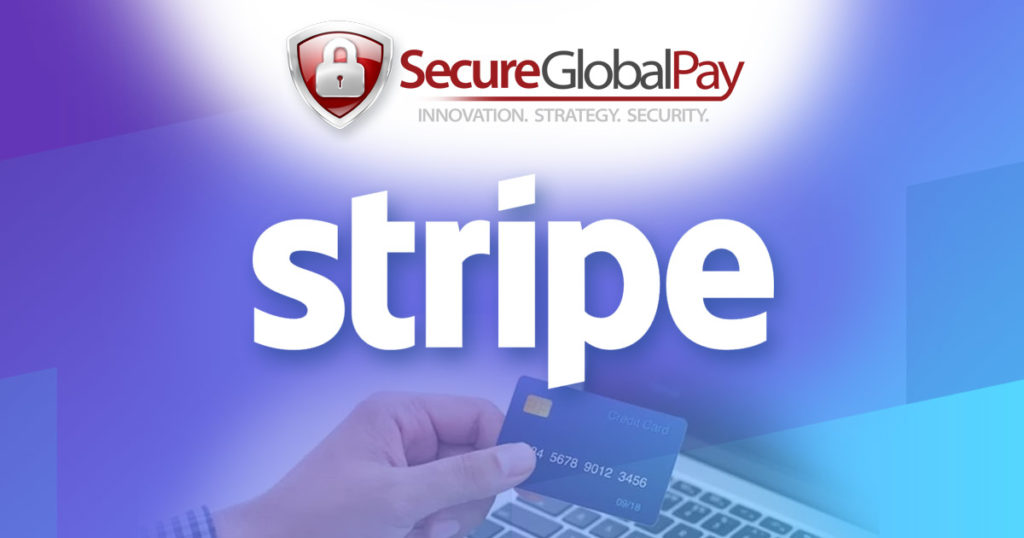
Do I Need a Merchant Account for Stripe?
A merchant account, or merchant processing account to give it a better name, is the term most commonly used for accepting credit card payments similar to Stripe. Funds cannot be paid directly into a business’s bank account. Instead, they must first be processed through a merchant account before being paid via ACH into the merchant’s business bank account. If you are looking for a direct MID or merchant account with more control and less risk of getting terminated, you can apply below.
Stripe already has a master merchant account set up for all its users as they are what the industry considers a “payments aggregator.” You don’t have to apply for a new one if you wish to use Stripe.
So – yes, you do need a merchant account to process payments but you will become a sub-merchant of Stripe’s.
How Does Stripe Differ from a Normal Merchant Account?
Stripe is actually a merchant account with its own unique Merchant Identification Number (MID). In effect, it bundles all its millions of users into that one MID. It’s a little more complex in reality but that’s the core concept.
Operators like Stripe, Square, and PayPal are called payment aggregators or payment facilitators (PayFacs) and are sponsored by a bank.
Entry-level business owners and smaller merchants often begin with a PayFac at startup to accept credit card payments, via online shopping carts or similar. As the company starts to scale and grows into a more serious enterprise, the need for a regular merchant account and payment platform quickly becomes obvious.
The Stripe Business Model Explained
PayFacs do not carry out in-depth checks or underwriting procedures on new users when they sign up. Users are very quickly boarded to the payment process. This is one of the attractions of that type of service. The vendor can begin to accept payments almost immediately.
This presents a risk to the PayFac because the new merchant could be operating an illegal business or a business not classified as low risk for example. It could lead to fraudulent transactions, chargebacks, or closure of the account.
This is very different from doing business with your regular card payment solution providers and issuing banks. They take great care in assessing and reviewing each application to help mitigate and minimize the risk they would acquire.
The thinking behind this payment option approach by stripe e-commerce merchants is that:
- Transactions will be for small amounts
- Merchants will process only low volumes of business
- The risks can be spread over a large number of fee-paying users
The Downside of using a Payment Facilitator
The ease and speed of sign-up with Stripe is balanced out by other factors. These are some of the more obvious ones:
Your brand image is weak – Using a PayFac as a payment processor for your credit and debit card sales transactions reinforces the “small” in small business. It makes a statement that the company is not very substantial and not worthy of its own merchant account.
Poor customer support – Credit card payment processing is a complex process that often has its glitches. When something goes wrong, you need a fast response and professional support from your payments processing provider. PayFacs have vast numbers of users and simply cannot provide the close support that regular merchant account service providers do.
Expensive for higher volumes – Stripe operates a simple single-tier fee structure with no monthly fee, regardless of how many sales transactions a company processes. Merchant accounts typically reduce their transaction fees as volume grows. That is naturally more attractive for cash flow.
No in-store option – Stripe is geared towards mobile payments from online outlets and other Card Not Present (CNP) transactions. If you have a bricks and mortar store you will need a POS terminal and that normally means you need a merchant account.
Do I need a Merchant Account for Stripe when my Business Grows?
You will never need a merchant account to use Stripe. However, you will very likely outgrow it if your business becomes successful. The major card networks (Visa, MasterCard, American Express, Discover) tolerate PayFacs for a business until its sales volume exceeds $100,000.
At that point, they insist that the business open its own merchant account.
You may need a high-risk merchant account if Stripe closes your account because of the industry you operate in.
Even though it does not carry out thorough pre-checks on applicants, Stripe is just as risk-averse as any bank about what industries it does not permit. The health risks of industries such as e-cigarettes, nutraceuticals, and cannabis are not yet fully understood. That could mean litigation down the line against any party involved in a sales transaction. Will Stripe do merchant processing for auction sites? This depends on many factors.
Equally, Stripe wants to avoid industries where fraud and chargebacks are known to be prevalent.
Once they discover that your business operates in what they consider a risky industry, they may close your account.
On the other hand, if you are selling standard lower-risk items then you can feel relatively safe until your business grows.
How do I get a Low Risk or High-Risk Merchant Account?
Our specialty is matching a business with a suitable credit card processing service in a specific geographic region. There is a solution for every legal business. Even high-risk merchants service UK businesses can start accepting card payments with our help.
The acquiring bank and provider we select for you will be very familiar with your industry. That means you are far less likely to have your account frozen. It is highly advisable not to state you sell toys if, in fact, you are selling electronics.
We also supply a payment gateway with every online solution. That is the technology that ties your website into the payment processing company to pass on the information about a sale.
Get Started Today and Enjoy the Benefits of Your Own Merchant Account
Click here to start the process. We will get back to you with a status update in 1-2 days at most.
Or you may prefer to speak directly to one of our payment processing solution experts. If so, please don’t hesitate to call They know the industry inside and out and will be delighted to answer any questions you may have. Call us at +1-800-419-1772.





